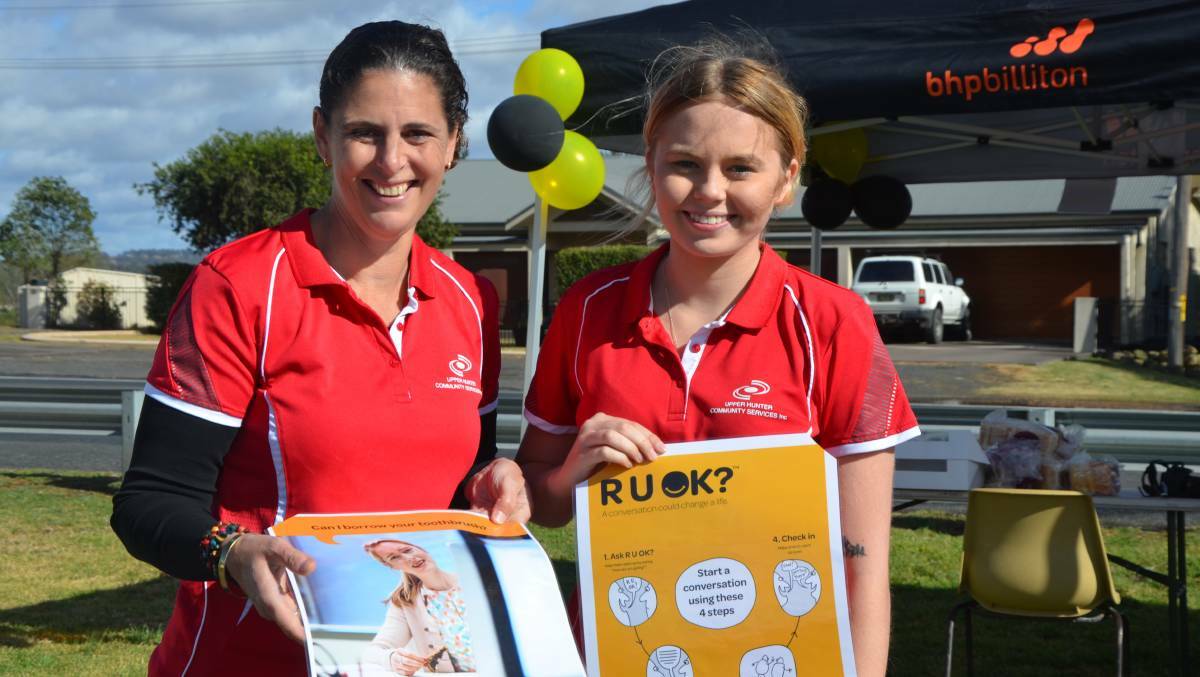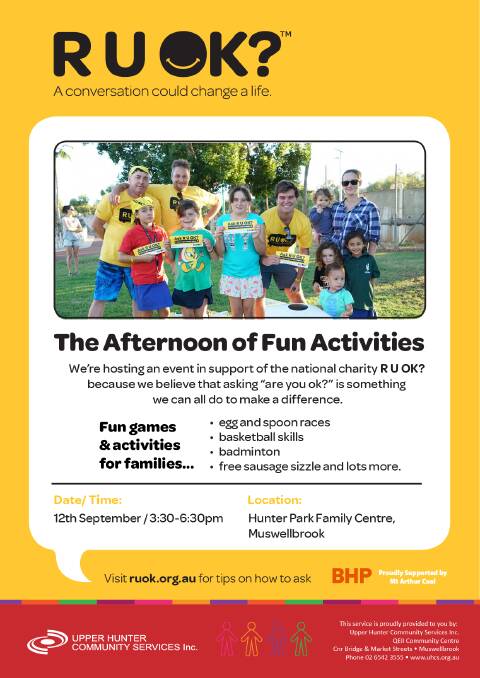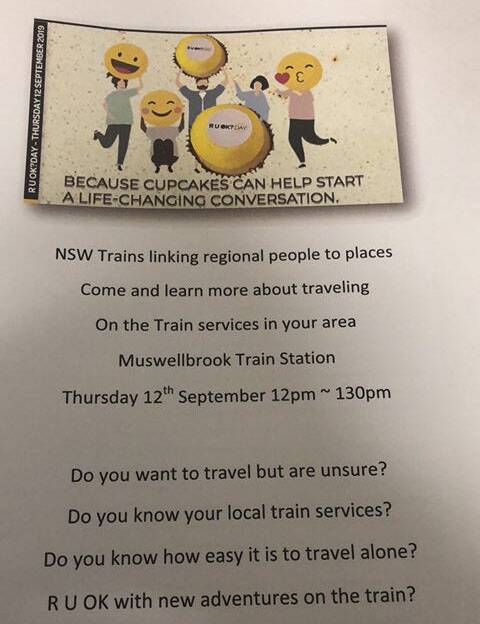
IT'S only a three-word question - but it can potentially change a person's life.
Subscribe now for unlimited access.
or signup to continue reading
Which is why R U OK? Day is so important throughout the region.
And, this week, Upper Hunter Community Services (UHCS) and Muswellbrook Train Station are hosting events to support the national charity.
"We believe that asking 'are you ok?' is something we can all do to make a difference," Muswellbrook Neighbourhood Service's Vanessa Harshman said.
"Taking part can be as simple as learning R U OK?'s four steps.
"One, ask R U OK?; two, listen without judgement; three, encourage action; and, four, check in [to see how the person is doing].
"We'll have an afternoon of fun activities on September 12 at Hunter Park Family Centre between 3.30pm and 6.30pm.
"There'll be egg and spoon races, basketball skills badminton, a free sausage sizzle and lots more."

Meanwhile, also on Thursday, the Muswellbrook Train Station will conduct a gathering between noon and 1.30pm, offering not only information but delicious cupcakes.
"We're focusing on the older generation and them travelling independently," Amy-Louise Jones said.
"Our CountryLink trains are due in [around that time], so people can witness just how easy it is to travel.
"It's a matter of showing them they R OK to travel, they R OK to try new things and be able to see loved ones easier.
"Although it's a different take on R U OK? Day, we like trying to connect people to change their life."
Visit ruok.org.au for tips on how to ask.

If you need a bit of extra help, phone these crisis lines:
Lifeline (24/7) 13 11 14
Suicide Call Back Service (24/7) 1300 659 467
Kids helpline (24/7) 1800 551 800
Beyondblue (24/7) 1300 224 636
Headspace (for 12-25 year olds) 1800 650 890
1. ASK R U OK?
* Be relaxed, friendly and concerned in your approach.
* Help them open up by asking questions like "How are you going?" or "What's been happening?"
* Mention specific things that have made you concerned for them, like "You seem less chatty than usual. How are you going?"
* PUSH BACK IF
* If they don't want to talk, don't criticise them.
* Tell them you're still concerned about changes in their behaviour and you care about them.
* Avoid a confrontation.
* You could say: "Please call me if you ever want to chat" or "Is there someone else you'd rather talk to?"
2. LISTEN WITHOUT JUDGEMENT
* Take what they say seriously and don't interrupt or rush the conversation.
* Don't judge their experiences or reactions but acknowledge that things seem tough for them.
* If they need time to think, sit patiently with the silence.
* Encourage them to explain: "How are you feeling about that?" or "How long have you felt that way?"
* Show that you've listened by repeating back what you've heard (in your own words) and ask if you have understood them properly.
3. ENCOURAGE ACTION
* Ask: "What have you done in the past to manage similar situations?"
* Ask: "How would you like me to support you?"
* Ask: "What's something you can do for yourself right now? Something that's enjoyable or relaxing?"
* You could say: "When I was going through a difficult time, I tried this... You might find it useful too."
* If they've been feeling really down for more than 2 weeks, encourage them to see a health professional. You could say, "It might be useful to link in with someone who can support you. I'm happy to assist you to find the right person to talk to."
* Be positive about the role of professionals in getting through tough times.
4. CHECK IN
* Pop a reminder in your diary to call them in a couple of weeks. If they're really struggling, follow up with them sooner.
* You could say: "I've been thinking of you and wanted to know how you've been going since we last chatted."
* Ask if they've found a better way to manage the situation. If they haven't done anything, don't judge them. They might just need someone to listen to them for the moment.
* Stay in touch and be there for them. Genuine care and concern can make a real difference.

